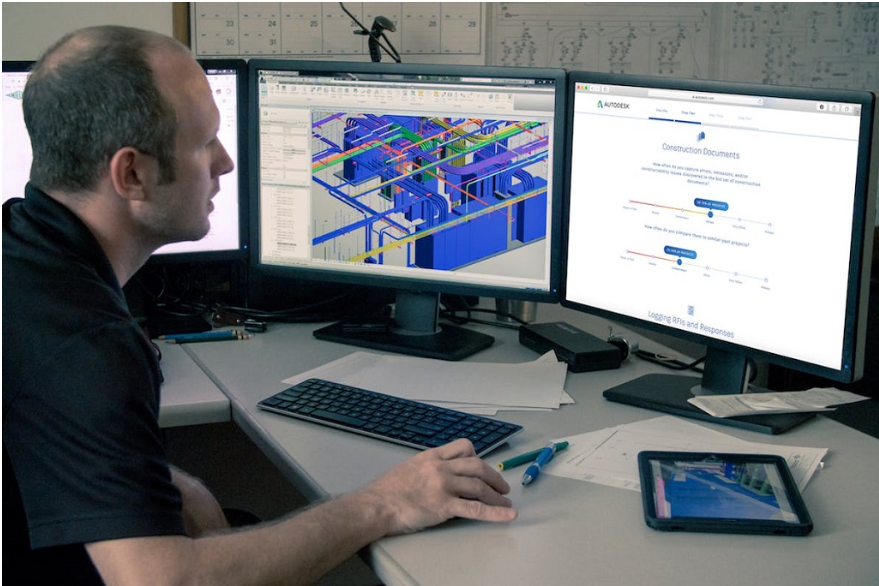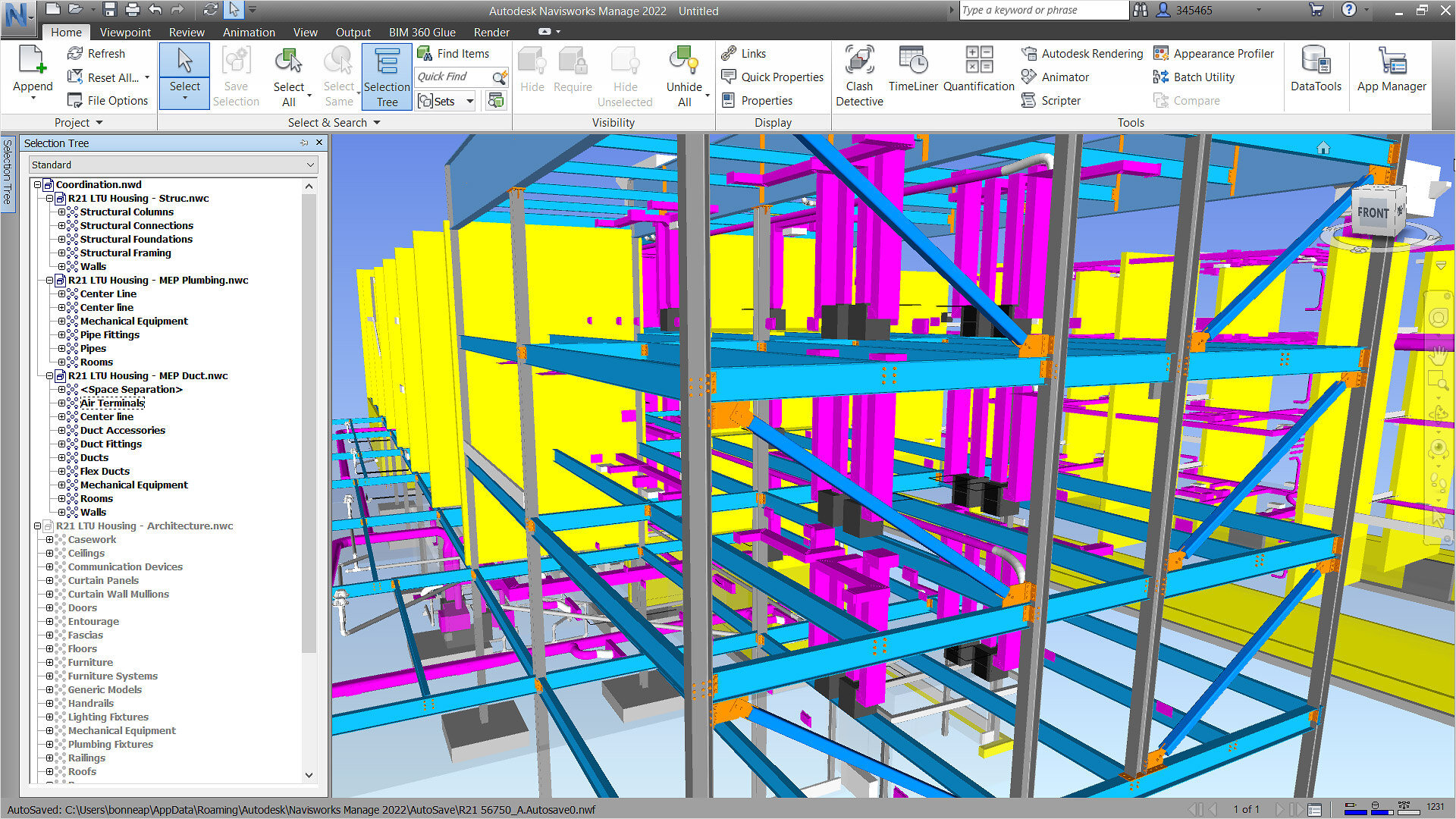The Ultimate Guide to Become a BIM Modeler: Important Skills & Training
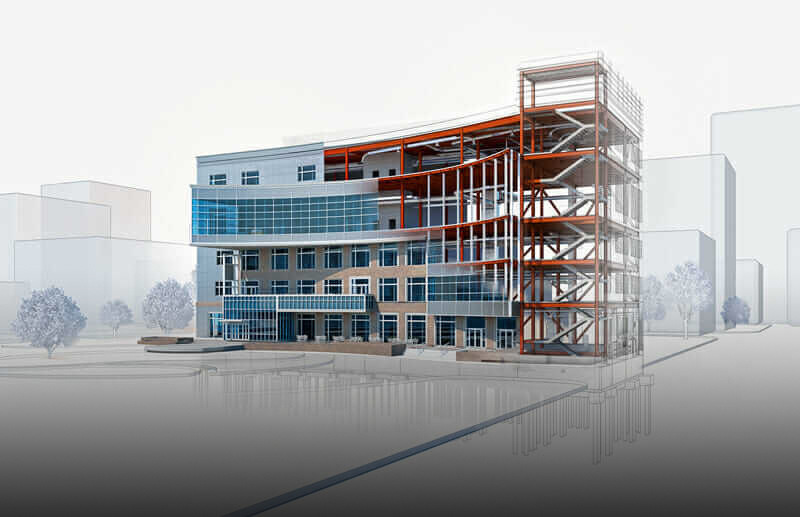
Table of Contents
A BIM Modeler is a professional who creates accurate 3D building models used for design, coordination, and construction planning. These models help architects, engineers, and contractors understand how every element in a building fits together. BIM Modelers work with tools like Revit to produce drawings, resolve clashes, and update models as a project develops.
Whether you're a student, beginner, or a design professional exploring career paths, understanding the role of a BIM Modeler can help you decide if this job aligns with your technical and creative strengths.
In this guide, you will learn who a BIM Modeler is, what they do day-to-day, the key technical skills and software you need, degree and certification paths, typical salary ranges in different regions, the career hierarchy in BIM, and the top BIM modeler training and certification courses you can take to get job-ready.
Understanding the Role of a BIM Modeler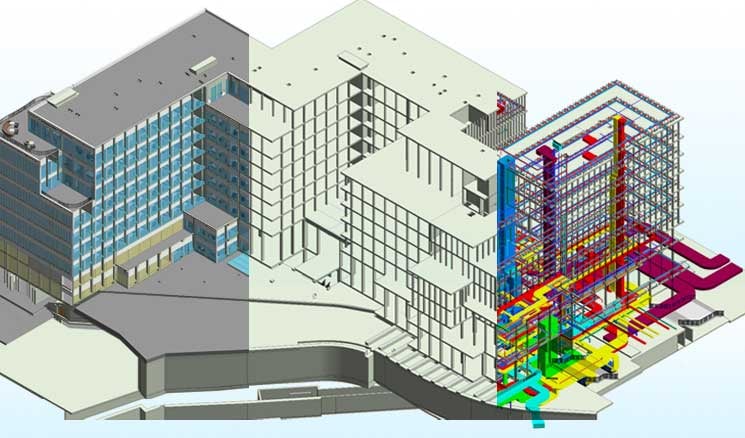
BIM is one of the most-sought after skills in the Architecture, Engineering, and Construction (AEC) industry. So, let’s understand how professionals with BIM modeling certification make a difference to projects.
1. Who is a BIM Modeler?
A BIM Modeler is a professional responsible for creating and managing digital 3D models of buildings, structures, and infrastructure projects. These models facilitate the planning, design, construction, and management of AEC projects. BIM Modelers use software like Revit, Rhino, ArchiCAD, Tekla, and BIM360 to develop detailed models encompassing every project aspect, including architectural, structural, and MEP (mechanical, electrical, and plumbing) systems.
2. Scope of Work for a BIM Modeler
The scope of work for a BIM Modeler is extensive and varied. It includes:
- Developing comprehensive 3D models of buildings and infrastructure projects using BIM software.
- Collaborating with architects, engineers, and other stakeholders to ensure that models are accurate and up-to-date.
- Creating and managing project documentation, including drawings, schedules, and specifications.
- Handling the large amounts of data associated with BIM projects and ensuring its accuracy and accessibility.
- Identifying and resolving design clashes and inconsistencies to prevent issues during construction.
- Ensuring that all models meet industry standards and project requirements.
- Performing simulations and analyses, such as energy performance, to optimise building design.
.png?width=760&height=422&name=3D%20model%20created%20using%20BIM%20Process%20(2).png)
3. Key Technical Skills of a BIM Modeler
BIM Modelers must possess a range of technical skills to excel in their roles, namely:
- Expertise in BIM software like Revit, Navisworks, ArchiCAD, and AutoCAD.
- Strong skills in creating detailed and accurate 3D models.
- Ability to create and interpret technical drawings and blueprints.
- Experience with clash detection tools and techniques.
- Competence in managing large datasets and ensuring data integrity.
- Ability to perform various simulations and analyses.
- Strong communication and teamwork skills for working with diverse project teams.
Also Read: Architecture Thesis Topics: A Comprehensive List of 30 Topics to Pick From
4. Salary of a BIM Modeler
- BIM Modeler Salary in India: On average, a BIM Modeler in India can expect to earn between INR 3,00,000 and INR 8,00,000 per year.
- BIM Modeler Salary in the US: The average salary for a BIM Modeler in the US ranges from $50,000 to $85,000 per year.
- BIM Modeler Salary in the UAE: Salaries for BIM Modelers in the UAE typically range from AED 120,000 to AED 240,000 per year.
- BIM Modeler Salary in the UK: The average annual salary for a BIM Modeler in the UK is between £30,000 and £50,000.
Please note these are rough figures and salaries depend on other factors like educational qualification, experience, etc.
5. Why are BIM Modelers Highly in Demand?
For AEC firms, the cost of training a person in digital processes like BIM costs twice the salary amount of that employee. Therefore, it is evident that there is a shortage of professionals with the expertise to effectively utilise these tools. This skill gap is exacerbated by the rapid BIM software evolution and the growing emphasis on digital construction practices, leaving a pressing need for qualified BIM Modelers who can bridge the divide and drive industry innovation. So, BIM modeling is a demanding job role in the industry.
6. Career Hierarchy of a BIM Modeler

-
BIM Modeler
This is an entry-level position where a professional creates holistic 3D models, coordinates with other disciplines, performs quality control checks, and ensures the accuracy of BIM models.
-
BIM Coordinator
BIM Coordinators manage BIM processes within project workflows, coordinate between disciplines, and ensure model integrity.
-
BIM Manager
BIM Managers oversee the entire BIM process, develop standards, manage resources, and train team members.
-
BIM Director
A BIM Director sets the strategic direction, leads a team of BIM professionals, and drives innovation across the organisation.
Also Check out: Top BIM Companies in India & the USA for BIM Modelers
Essential Degree and Certificates Required to be a BIM Modeler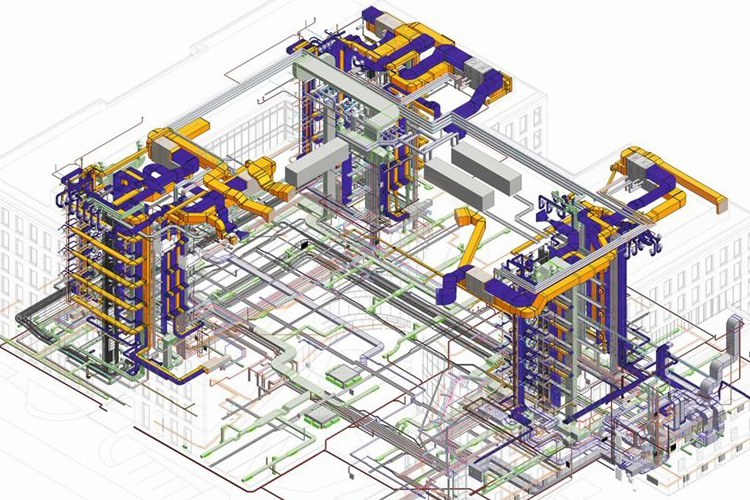
BIM 3D modeling has emerged as the “it” trade skill. BIM-skilled professionals can create a solid career path and unlock high-paying job opportunities. Take a look at the must-have educational qualifications for a BIM Modeler:
1. Relevant Education Paths
- Architecture, Engineering, or Construction Management Degrees
A strong educational foundation in architecture, engineering, or construction management is required for aspiring BIM Modelers. These programs provide a comprehensive understanding of building design, construction processes, and project management, which are fundamental to creating accurate and effective BIM 3D models.
2. Essential Qualifications
- BIM Software Certification
Obtaining certificates from BIM software providers, such as Revit, ArchiCAD, or Navisworks, demonstrates a high level of expertise and can significantly enhance job prospects. These certifications validate skills in using specific BIM tools and managing complex modeling tasks.
- Certification in Building Information Modeling Processes
For a well-rounded knowledge of BIM workflows, candidates must learn the process of BIM in-depth. Platforms such as Novatr provide certification courses led by industry experts that help in developing a holistic subject understanding. These credentials can set candidates apart in a competitive job market and validate their expertise in BIM processes and standards.
Top 5 BIM Modeler Training & Certification Courses
BIM modeling certification is non-negotiable for AEC professionals. Upskilling in BIM helps you make meaningful contributions to projects and position you as a future-forward professional, bringing diverse career opportunities to your doorstep. So, if you are planning to learn BIM, here is a list of 5 highly recommended BIM modeling training courses you can check out.
1. BIM Professional Courses by Novatr
Duration: Seven months
Fee: INR 1,95,000
Novatr offers two separate BIM Professional Courses for Architects and Civil Engineers. These courses offer a comprehensive curriculum designed to cover all aspects of Building Information Modeling. The key topics include:
- Introduction to BIM principles and methodologies
- Advanced Revit modeling techniques
- BIM collaboration and coordination
- Clash detection and resolution
- Project management in BIM environments
Novatr’s BIM modeling training employs a mix of live online sessions and self-paced learning modules. The course includes interactive webinars, practical exercises, and case studies to ensure hands-on experience. Students also have access to a range of resources, including video tutorials and downloadable materials.
2. BIM-Ready Complete by TechnoStruct Academy
Duration: Six months
Fee: INR 1,00,000
These BIM modeling classes include a wide range of topics including:
- Fundamentals of BIM and its impact on the AEC industry
- Detailed training in Revit and other BIM software
- Practical applications and real-world project examples
- Advanced modeling techniques and parameter management
- BIM implementation strategies and best practices
This BIM modeling training combines online lectures alongside practical workshops. The platform uses a hands-on approach, allowing students to work on live projects and simulations. The course also includes quizzes and assignments to reinforce learning.
3. BIM in AEC Industry Using Revit by Skill Lync
Duration: Nine Weeks
Fee: INR 40,000
Skill Lync’s course focuses on BIM workflows with an emphasis on Revit. The curriculum includes:
- Basic to advanced Revit skills
- Creating and managing BIM models
- Integrating MEP systems into BIM models
- Using Revit for clash detection and resolution
- Understanding BIM workflows and project lifecycle
This BIM modeling training offers a blended learning approach with video lectures, interactive exercises, and real-time project work. The course includes practical assignments and peer reviews to enhance learning and application.
4. Professional BIM Course by BIM Cafe
Duration: Four months
Fee: Not specified
The Professional BIM Course by BIM Cafe provides an in-depth exploration of:
- BIM fundamentals and its role in modern construction
- Advanced modeling techniques in Revit and other BIM tools
- BIM project management and collaboration strategies
- Quality control and data management in BIM projects
- Real-life case studies and industry best practices
These BIM modeling classes use a combination of live virtual classes and self-paced learning materials. The course includes hands-on exercises, case studies, and live Q&A sessions with industry experts to ensure practical understanding.
5. Revit and BIM Certification Course by Kaarwan
Duration: Four months
Fee: INR 62,999
The BIM modeling training offered by Kaarwan covers:
- Introduction to Revit and its BIM capabilities
- Advanced Revit modeling techniques and best practices
- Integration of BIM with other software and tools
- Workflow management and project collaboration
- Performance evaluation and model optimisation
Kaarwan offers a structured learning experience with pre-recorded video lectures, interactive assignments, and live webinars. Students engage in practical projects and receive feedback from instructors to apply their knowledge effectively.
Also Check out: Civil Engineer to BIM Modeller: An Expert's Guide to Boost Your Career Growth
In Conclusion
Becoming a BIM Modeler requires a clear mix of technical skills, BIM software knowledge, and an understanding of AEC workflows. Once you build a foundation in modeling, coordination, and BIM processes, you can grow into roles such as BIM Coordinator, BIM Manager, or BIM Director, depending on your experience and responsibilities.
Choosing the right BIM training program is an important step. Structured courses help you learn real project workflows, work with industry tools, and build the practical skills employers look for.
If you want to develop job-ready BIM skills, consider exploring the BIM Professional Course for Architects at Novatr, which includes hands-on projects and placement support.
For more insights on BIM tools and workflows, visit our Resources Page.
FAQs
1. What is BIM modeling and what does a BIM Modeler do?
BIM modeling involves creating detailed, data-rich 3D models used for design, coordination, and construction. A BIM Modeler builds and updates these models, produces drawings and schedules, and helps resolve clashes across disciplines.
2. Why is BIM modeling important in construction projects?
BIM modeling improves accuracy, reduces rework, and supports better coordination between architecture, structure, and MEP teams. It helps deliver projects faster, with fewer site conflicts and clearer documentation.
3. Which software is used by BIM Modelers?
BIM Modelers commonly use Revit, Navisworks, Archicad, Tekla, Rhino, AutoCAD, and BIM 360, along with plug-ins for visualization, clash detection, and automation.
4. What are the latest trends and innovations in BIM?
Key BIM trends include cloud collaboration, automation with tools like Dynamo or Grasshopper, VR/AR design reviews, digital twins, and data-driven project management.
5. What are the different career levels in BIM modeling?
Typical BIM career levels include BIM Modeler, BIM Coordinator, BIM Manager, and BIM Director, with each step involving more responsibility in model management and digital project workflows.

 Thanks for connecting!
Thanks for connecting!


.png)




.jpg)
